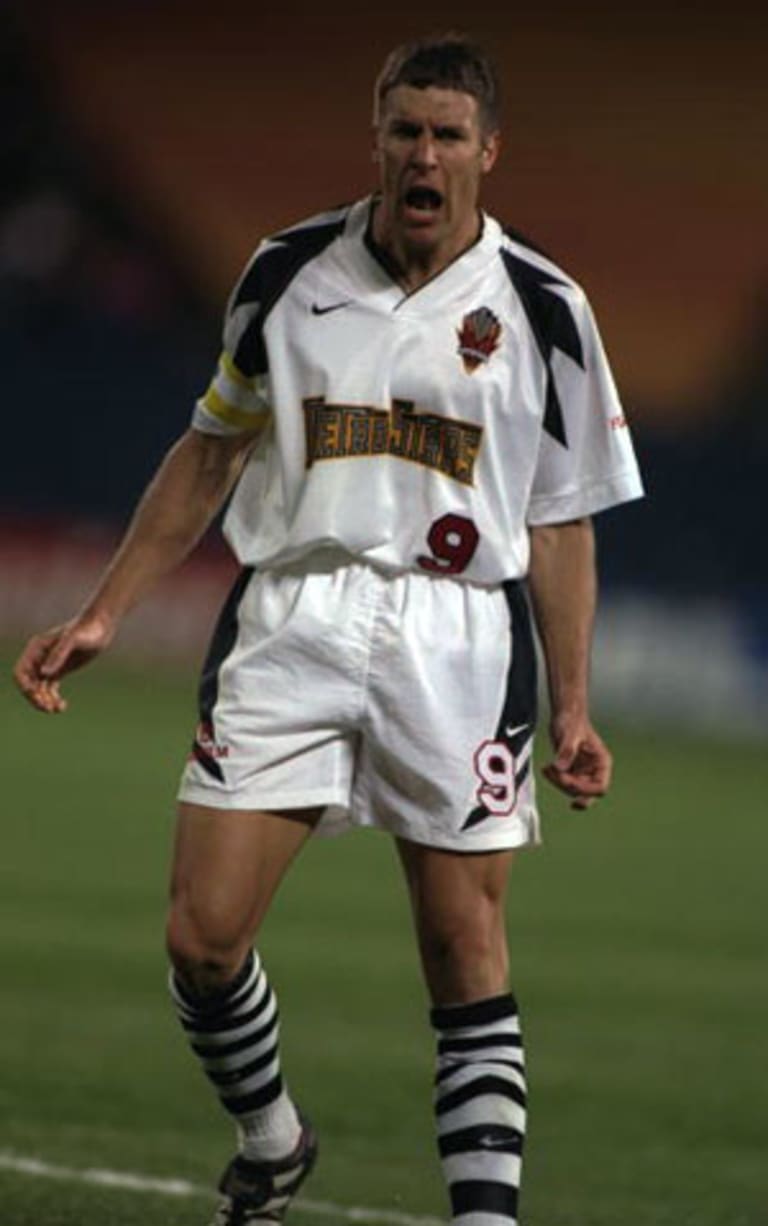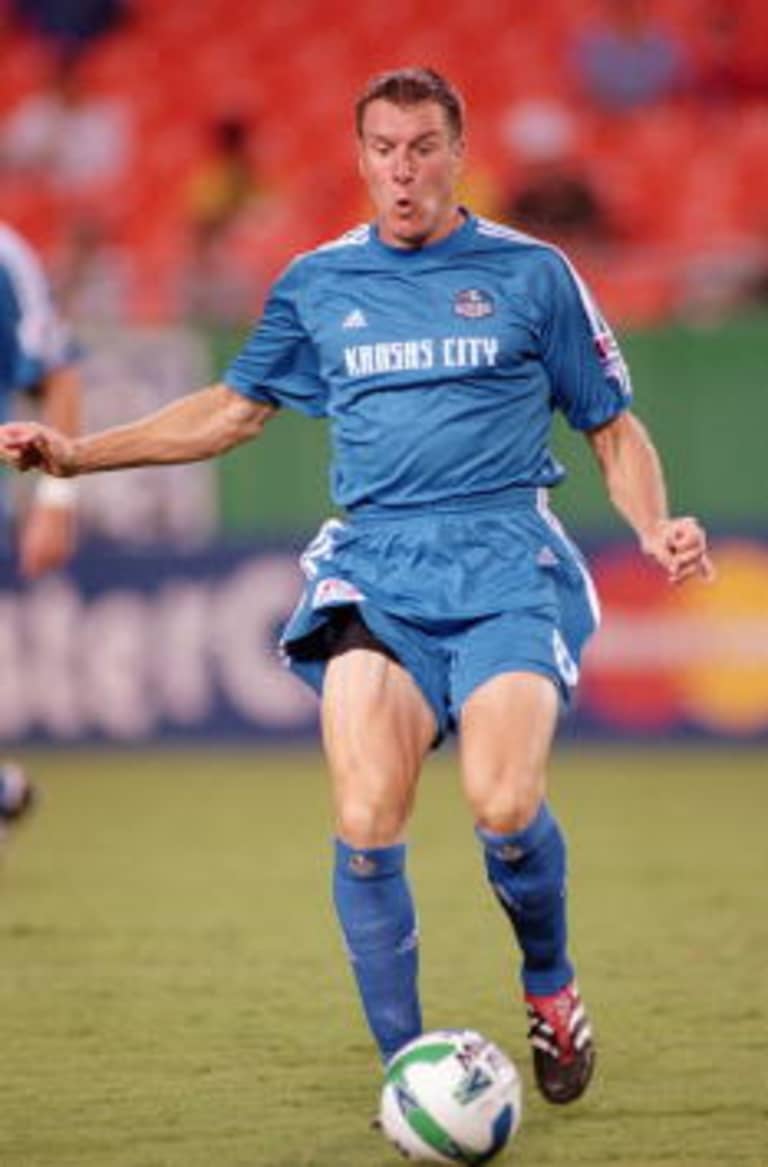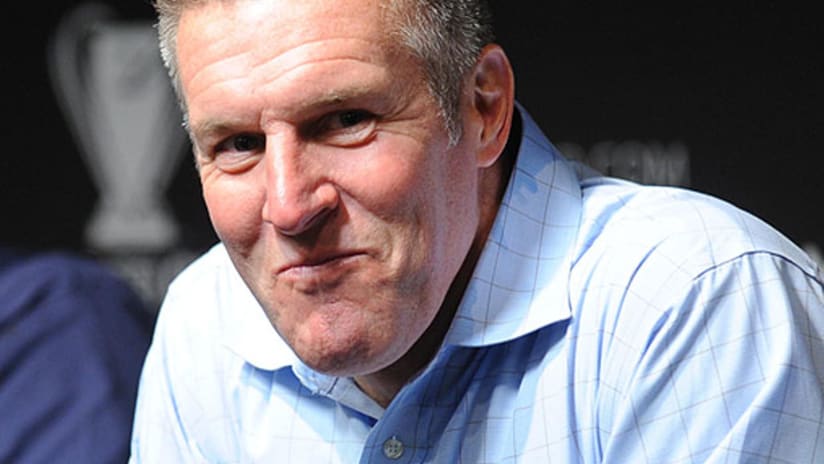Our normal meeting place was a rest stop off the New Jersey Turnpike, Exit 7A. We would meet there around 9 pm on Sunday nights. He’d get out of his car, hop in the Acura I’d borrow from my wife, and north we’d go into New York City.
Peter Vermes was my go-to guy in 1996, when I was the director of public relations for the MetroStars. He was the team captain, which would have made him a good go-to guy in any situation, but on this team, having him as my guy was a gift from heaven.
Peter understood my plight. The MetroStars were not high on any of the media’s hit lists, but they were often presented with chances to appear on television at odd hours. I recall a favorite request being those late, Sunday night, sports recap shows on the networks. For most players, understandably, they asked that door-to-door car service be provided.
It goes without saying, however, that not everyone would provide our players with car service in 1996. So it was up to me to get players in and out of the city. And so we drove.
I lived in central New Jersey, along the coast. Peter lived closer to Philadelphia. He’d drive about a half-hour North to our meeting place. I’d drive the same distance West.
- POWER RANKINGS: Sporting Kansas City end 2013 on top of the poll

I’d apologize to him for the inconvenience, but he’d have none of it. Peter understood the New York market, and he was well aware we were not the Nets or Devils, much less the Rangers, Knicks, Yankees, Mets, Jets or Giants. When we were asked to appear on TV, we had to do it.
Neither of us was happy about it. We were both young fathers and we wanted to be home on a Sunday night with our kids, helping out, and preparing for a new work week.
But it didn’t matter that we were unhappy, we had a job to do. So, we’d gripe all the way up the turnpike and through the Lincoln Tunnel. And then we’d put on a happy face as we walked through the door of the TV station and got two or three minutes of air time.
That season was a trying one for Vermes (right) and his teammates. You could sense the players’ frustration straight out of the gate as the MetroStars’ original coach Eddie Firmani didn’t seem to have a very firm grasp on the league’s player acquisition rules. The MetroStars famously opened the season in front of 69,000 fans in the Rose Bowl and had released about a third of the starting lineup by the time they played a week later.
It took only eight games before Firmani was sacked, but if you were around the team at all, you were almost shocked that the old Cosmos coach lasted that long. It seemed to me that after a game or two Vermes was doing an awful lot of talking on the training field. When I’d go to practices at Kean College, Vermes’ voice was the loudest by far.
When Carlos Queiroz was hired, the team found its footing. Vermes, who began the season as a striker, was moved to midfield and, finally, to the center of the defense. Looking back, it was a move for Vermes that changed the course of his career.
For one thing, the MetroStars became a pretty formidable opponent. A tough out, at least. But for another, coaches around the league took notice of how well he was playing.
Which brings me to our very first offseason and the day Peter was traded to the Colorado Rapids for a draft pick out of North Carolina named Kerry Zavagnin. Of course, Zavagnin – who happens to sit alongside Vermes now on the Sporting Kansas City bench – would go on to have a stellar MLS career, but the trade was a shock.
It was a shock to those who’d witnessed Vermes develop into one of the league’s best defenders during the second half of the 1996 season. But more than that, it was a shock to Vermes himself, because of all he had done to try and help the MetroStars launch.
I can remember years later Tony Meola calling the trade of Vermes “the first, second and third worst trades in the history of the MetroStars.”
I can remember being pretty speechless when I said goodbye to my go-to guy. I can remember trying to tell him how much I appreciated all he’d done for me. Forget the team and the league. Selfishly, I wasn’t sure how I’d be able to work without Peter.
And I remember wondering if the trade would be more than he could handle. Like a lot of players in MLS, Vermes had banked on working close to home. He was a Jersey guy with a lot of offseason Jersey soccer business to supplement his income. And honestly, back then, it certainly might have made more sense for Vermes and his family if he stayed in Jersey and taught the game to kids.

Vermes was, honestly, not a guy many projected to have a long and fruitful MLS career. He was a striker on the 1990 US World Cup team, but he was passed over in 1994. He had fallen off the radar a bit in the pre-internet age, playing in the Spanish second division for Fegueres, while also finding games for teams like the New York Fever. He was known mostly as a striker in the US, and didn’t look up to the task of scoring goals in MLS.
When he was traded he told me he had a lot to think about, but ultimately he seemed to understand that he still had years left in his legs. And the pull of the professional game, especially after waiting so long for an American league to launch, was too great for him.
So, he went to Colorado, where he promptly led the Rapids to an MLS Cup final. In 2000, he was dealt again, this time to Kansas City (right), where he became the league’s Defender of the Year and a champion.
I watched him on Saturday leading Kansas City to another title, this time in the coaching role he was meant to have all along, and couldn’t help but think of 1996.
A champion’s a champion, no matter where the road takes him. Even if it’s a long way from the New Jersey Turnpike.













